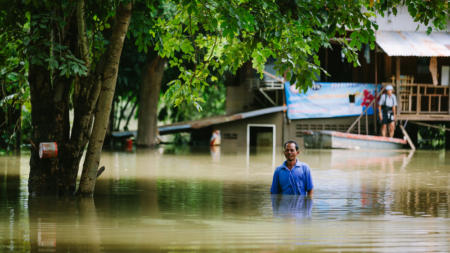
I have always loved reading about science. It often makes me wish I’d become a science writer. There is so much wonder and mystery in science, so much that is known and so much yet to be discovered. But I have developed an unfortunate habit of trying to apply the ideas and principles I read about to human life and behavior, always a leap, no doubt horrifying to most scientists. Still, something compels me to look at how one sphere mirrors another, how patterns repeat themselves throughout the universe. (See my blog on entanglement for an example of this kind of extrapolation.)
My most recent fixation emerged from reading Elizabeth Kolbert’s book The Sixth Extinction. The book is worth reading for any number of reasons, not the least of which is the compelling case it makes for how we humans are on a collision course to our own extinction. One of the most memorable parts of the book for me is her recounting of the great divide in thinking among nineteenth century geologists and paleontologists. There was one group who came to be known as the “uniformitarians” (Darwin among them) who believed that the Earth and its species had evolved gradually, without sudden or dramatic change. The other group, the “catastrophists” (George Cuvier a major proponent) believed that some of the mass extinctions shown in the fossil records could only be explained as a result of a sudden catastrophic event. This view was widely refuted among scientists until the late twentieth century when large amounts of iridium (an element very rare on the Earth’s surface but common in meteors) was discovered in Mexico, eventually leading to the hypothesis that a meteor had hit the Earth and led to a mass extinction event, most famously known for taking the dinosaurs down. Within a relatively few years the scientific community came to agree about this hypothesis, giving credence to the idea that, although much of the formation of the Earth and its species has happened gradually, there have indeed been sudden catastrophic events that have dramatically changed the Earth’s course.
The resistance of the uniformitarians to the idea of sudden change makes complete sense to me from a purely human nature point of view. We all would like to believe that our lives will follow a generally predictable path stemming from the choices we make about careers, marriage, children, etc. We’re open to some surprises, but in general we’re wary of sudden and unpredictable upheavals.
But in truth, human life is full of upheavals—I’m talking about negative events here—that can’t possibly be foreseen. There are the large crises that affect entire communities—fires, hurricanes, earthquakes, floods, 9-11 type attacks—and then there are the upheavals that befall us personally: the death of loved ones, divorces, layoffs, health crises. Sometimes these events take years to recover from, sometimes they cast our lives in new and positive directions. Most of us can look back and identify such moments in our lives.
It would be naïve to expect life to be devoid of such “catastrophes,” and yet it seems most of us expect just that. Or perhaps that’s what we hope for, shoving the fear of the unexpected to the backs of our minds. We tell our kids exactly what our parents told us, that things will be fine if we stay the course.
When I was twenty-seven years old I had a ruptured ovarian pregnancy, an emergency that landed me in a New York City hospital for a week. My mother was so disturbed by the news that my sister practically had to drag her down from Boston to visit. I can still recall the terrified look on her face when she entered the hospital room. Why had this happened? This wasn’t the script she had written. In that script she would always be able to keep me from harm.
We spend so much time, energy, and money to bolster the illusion that we and our loved ones can be totally safe. Insurance, nest eggs, vitamins, diet and exercise, and so on. These things all have their place, but they don’t eliminate the possibility—the certainty—that we will face some kinds of catastrophes in our lives. It is my opinion that we should stop denying that bad things will happen, often suddenly. We should teach our children—and remind ourselves—that death and disease and climate crises are not anomalies but inevitabilities that we will have to navigate at some point in our lives. That doesn’t mean living with perpetual terror about the next lurking crisis—it means learning to live with a greater acceptance and respect for our fragility, as well as the fragility of those around us. Maybe that will lead us to appreciating how beautiful and ephemeral life always is.
Add Comment